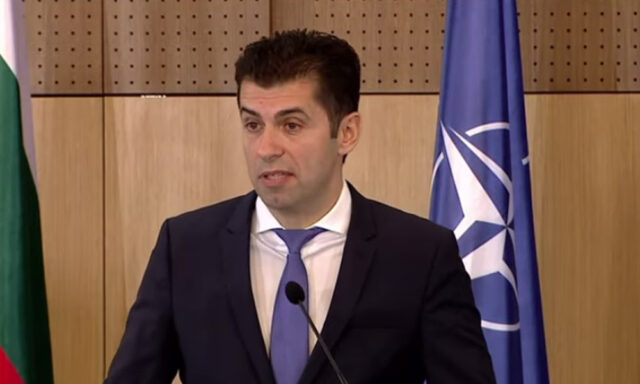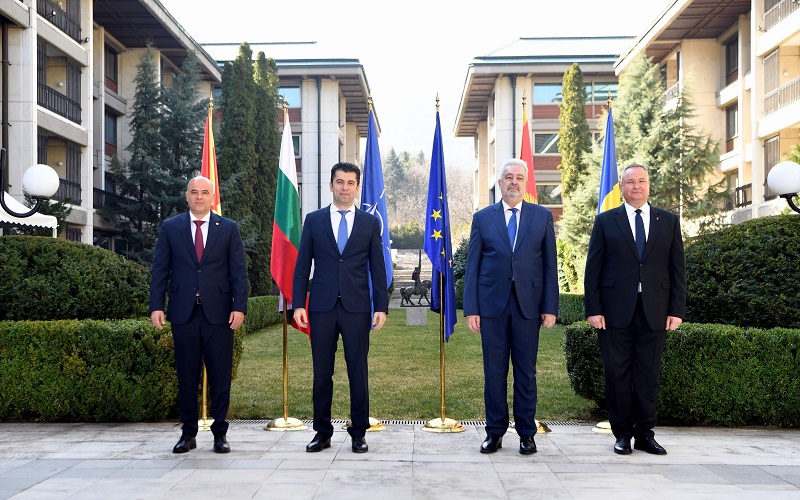Last year, as a country, we started with projects in the field of energy transition and from traditional energy sources to start producing energy from renewable sources. That is why numerous projects in the field of solar energy have already been launched, and one of them will soon be put into operstion and connected to the network, said Prime Minister Dimitar Kovacevski at a joint press conference in Sofia of the Prime Ministers of NATO member states from Southeast Europe – Bulgaria, Montenegro and Romania.
In terms of gas supply, we are also a country that is completely dependent on Russian gas and that is why Macedonia has made a decision and has already signed the first agreement to enter into a project with the new terminal in Greece. Bulgaria will also be present, so it is a regional strategic project and we say that now the gas will run from South to North. The same goes for the other side. We are working on interconnection with the gas pipeline from Greece to Macedonia, which is a project in the last phase of implementation, said Kovacevski.
He stressed that about 30 days ago a new energy connection between Macedonia and Albania has been launched.
This is important not only for the two countries, but for the entire region, including Bulgaria, because now the electricity produced in Greece can go through Macedonia and Albania and under water to Italy and other countries. This shows how regional cooperation and investments in large energy infrastructure projects can bring benefits not only to one country, but to the entire region, said Kovacevski.
The Prime Minister noted that the war in Ukraine created the biggest problems after World War II.
The problem is the gas deficit and the historically lowest level of reserves in Europe, which not only increases the price of gas, but also increases the price of electricity by five times. The shortage of gas also puts pressure on the production of ammonia which is crucial for the production of fertilizers and we have a shortage of fertilizers on the world market and can now be bought for 300 or 400 times higher price. With that, all food prices rose by the highest percentage after the Second World War, said Kovacevski.
He said that all this is happening because the two largest wheat producers Ukraine and Russia are practically at war.
Some of the countries in the region have surplus wheat production, while others have no surplus and buy from other countries. A good thing is the solidarity that shows the high level of responsibility from all countries in the region and that is why we do not have a shortage of wheat at this time as one of the key food products such as cooking oil. Not only today but we are constantly in communication with each other. We talk with Kiril even on the weekends, and our ministers are in constant communication and coordination because we must make sure that in this biggest crisis facing Europe and the world after the Second World War we will provide food and all other necessary products for our citizens because it is our responsibility in these times of crisis, said Kovacevski.
Bulgarian Prime Minister Kiril Petkov stressed that the war is forcing us to move fast and turn our strategies 180 degrees. That, as he said, refers to the gas that used to run to the North should now run to the South.

We already have a Trans-Balkan gas pipeline that has a significant capacity and used to carry gas from Romania through Bulgaria to Turkey. Now it is time to turn it in the opposite direction and see how we can use gas from Turkey and Greece to return this gas to Romania and make a circle in the Bulgarian infrastructure that already has the capacity to deliver to the Balkans. This connection would go to Macedonia as well, Petkov said.
He stressed that the region should focus on renewable energy and added that we share a common idea that renewable energy sources should be invested together.





Comments are closed for this post.